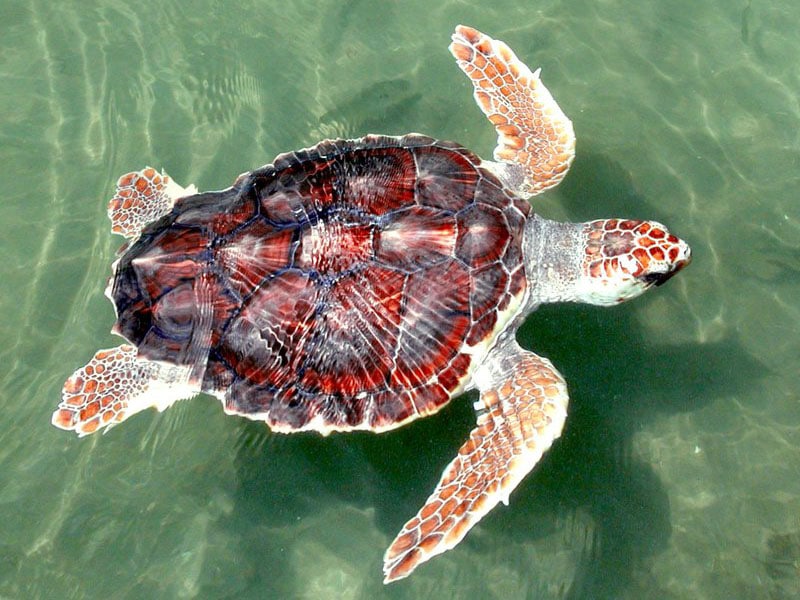The Center for Biological Diversity, Calusa Waterkeeper and Waterkeeper Alliance say the National Marine Fisheries Service and the U.S. Army Corps of Engineers failed to fully consider how the toxic algae and other pollutants from the Corps’ lake discharges harm wildlife, especially when they occur at the same time as red tide.
“Toxic algae blooms are already forming on Lake Okeechobee, yet federal regulators refuse to admit that lake discharges harm marine wildlife,” said Jaclyn Lopez, Florida director at the Center for Biological Diversity. “We can’t have a repeat of years past when Floridians witnessed piles of dead and dying wildlife, thick, guacamole water and the empty promises from federal regulators. We won’t stop until the agencies right this course.”
The notice is in response to agencies’ failure to adequately consider harms to wildlife from the Lake Okeechobee Regulation Schedule, or LORS.
After the groups noticed the agencies over similar violations in December 2018 and filed suit in June 2019, the agencies reinitiated informal consultation. But recently the agencies concluded LORS is not likely to adversely affect protected smalltooth sawfish, Johnson’s seagrass, or loggerhead, green, Kemp’s ridley, hawksbill or leatherback sea turtles.
In the 12-year history of LORS, the federal agencies responsible for consulting on harms to protected wildlife have never analyzed whether LORS jeopardizes listed species or adversely modifies their habitat and have never authorized harm to the species.
Loggerhead sea turtle critical habitat is found in the Caloosahatchee and St. Lucie estuaries; smalltooth sawfish critical habitat is found throughout the Caloosahatchee estuary; and Johnson’s seagrass critical habitat is found in the Indian River Lagoon.
“It’s hard to believe that the federal agencies could conclude that LORS is unlikely to impact sawfish, sea turtles or their protected habitat despite the resources getting bombed every summer with excessive flows and starved every dry season for adequate flows often leading to toxic algal blooms,” said John Cassani, Calusa waterkeeper.
“It’s extremely disappointing that the National Marine Fisheries Service, which is charged with protecting these endangered marine species, has conducted such a haphazard and flawed review of the enormous impacts of toxic releases of contaminated water from Lake Okeechobee,” said Daniel E. Estrin, general counsel and advocacy director at Waterkeeper Alliance. “The agency’s conclusion that the releases are not likely to adversely affect any of these species or their critical habitat is a dereliction of duty and is plainly wrong.”
It is well documented that the LORS harms the Caloosahatchee and St. Lucie rivers, their estuaries, and marine plants and animals. Conservation organizations’ 2019 lawsuit is still pending in the Southern District of Florida.
View Full Complaint

























